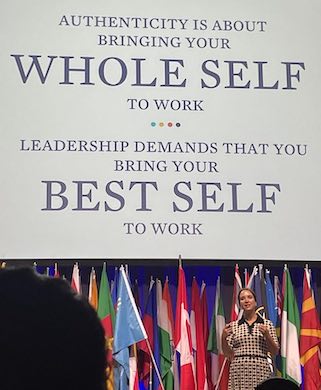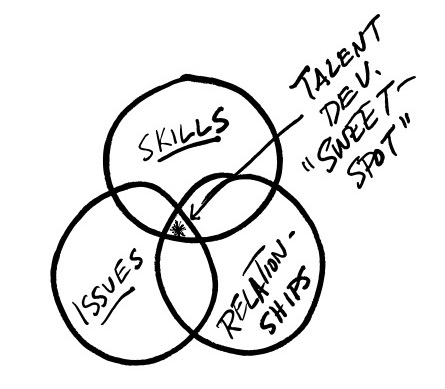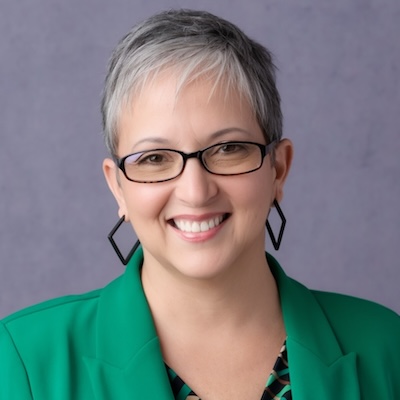4 minutes
Embark on a mutually fulfilling learning journey by trying this three-dimensional approach to self and staff development.

It’s an exciting time to be stepping into the CEO role at CUES, which is dedicated to developing credit union leaders. I recently returned from the 2023 World Council of Credit Unions conference, where the collective spirit of credit union professionals from around the world filled the event with goodwill and collaboration.
During the conference, keynote speaker Kim Lear delved into generational leadership and offered a thought-provoking insight: “Authenticity is about bringing your whole self to work; leadership demands that you bring your best self to work.” This call to action not only prompts leaders to focus on their own development but also underscores the importance of fostering growth within our organizations.
From the keynote addresses to informal conversations over dinner, a clear theme emerged: Credit unions worldwide are grappling with similar and unprecedented challenges in finding, developing, and retaining skilled and diverse talent. Addressing today’s talent challenges will require a holistic and innovative approach to talent development strategy.
The Skills-Issues-Relationships Approach to Talent
A strategic approach that has served me well is one used by community and civic leadership development organizations nationwide, including Leadership Austin, where I served as CEO for five years. This approach involves a leadership model focusing on three critical components and competency areas that can benefit leaders from all sectors: skills, issues and relationships.
Skills: It’s natural to prioritize a skills-based focus when devising a strategy to recruit, retain and nurture talent. “Upskilling” current teams to meet technological advancements, comprehend payment or core systems intricacies, and adapt to virtual member service efficiently—while still being attentive to their needs—makes perfect sense. However, in today’s competitive talent market, where both legacy and emerging high performers seek more than just skill progression, senior leaders must adopt a truly three-dimensional strategy. This approach should consider not only tactical skill development but also how these skills are applied throughout the cooperative.

Issues: The worldwide credit union community recognizes the significance of “thinking globally and acting locally,” especially now. Investing in issues-based development involves addressing topics like regulatory compliance, emerging economic trends, cybersecurity and risk management. In addition, educational programs such as Global DE place particular emphasis on social issues that impact the daily lives of credit union employees and members both domestically and internationally. Deeper involvement with challenges such as climate change, housing affordability, food insecurity, healthcare and the digital divide can positively influence local operations, beyond corporate social responsibility. Leaders who understand, empathize and collaboratively address these challenges with a member-centric focus can enhance product development and service delivery exponentially.
Relationships: “Relationships are all there is.” This motto greeted me on a prominent sign in the lobby of my very first credit union. The credit union community is renowned for its strong interpersonal connections, networking capabilities, information-sharing, empathy and support. Nevertheless, an essential question raised at the WOCCU opening reception was, “How well are we truly collaborating?” Developing talent in the art of creating, deepening and maximizing relationships is as crucial as skills-based and issues-focused development. Building genuine relationships is a largely experiential process that demands time and effort, whether it’s done through attending in-person industry or adjacent-industry learning events, joining a non-profit board relevant to your members or larger community, participating in an online discussion forum, taking an interactive web-based course or connecting with inspiring individuals from news articles.
While credit union leaders do network with one another, the true art of relationship-building extends beyond the business card exchange and creates results through shared interests and collaborative action. To achieve lasting impact, we must focus on inclusion and actively seek out those who are affected by but not already part of our conversations. This approach extends to recruiting, mentoring, sponsorship, camaraderie and service on boards and committees, as well as joint projects and initiatives that benefit the entire credit union community.
How to Get Started
One of the most effective ways to engage in this three-dimensional approach to self and personnel development is to embark on a mutually fulfilling learning journey. Participants in CUES’ flagship leadership development programs, for example, accomplish long-term projects and support each other’s skills and industry knowledge. Alumni of these institutes often attest that the relationships formed are among the strongest and most enduring in their careers.
As we in the credit union movement approach the planning season for 2024, creating a talent development strategy that encompasses these three dimensions will provide our organizations with a broader vision and equip our people with resilience, adaptability, insight, responsiveness and a people-focused mindset. This comprehensive approach will not only drive growth and impact for credit unions but also foster meaningful and lifelong careers dedicated to serving them. Gain key leadership development skills, identify top talent market issues and build relationships with other credit union talent leaders—at TalentNEXT, Sept. 10-12 in Savannah, Georgia.
Heather McKissick, I-CUDE, is CEO of CUES. Her 30-year not-for-profit career encompasses six different industry sectors. She is a former EVP at University Federal Credit Union, Austin, Texas, where she served for nine years. Prior to that, she was CEO of Leadership Austin, an organization dedicated to developing community and civic leaders across Central Texas. McKissick is the previous director of organizational development at one of the largest non-profit healthcare systems in the US and was an administrator and faculty member at St. Edward’s University.






